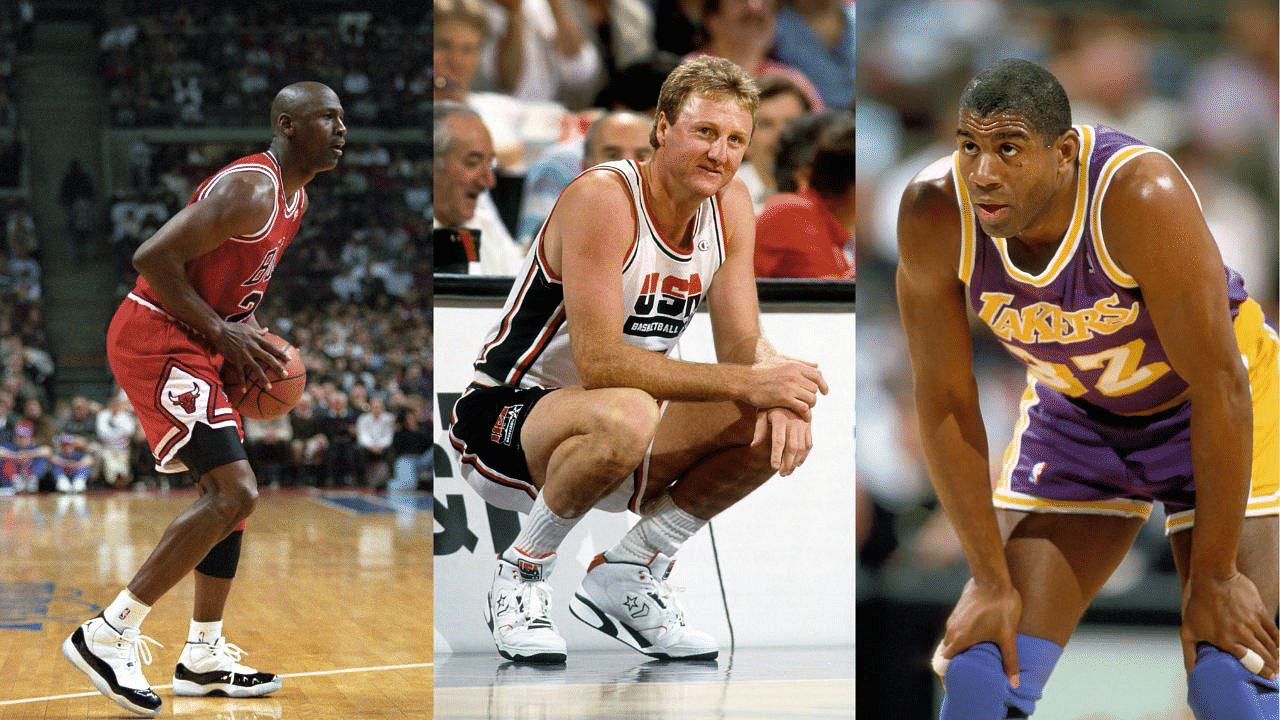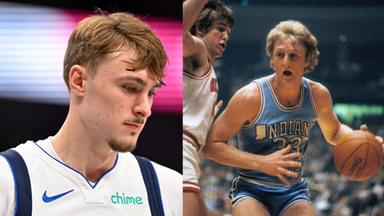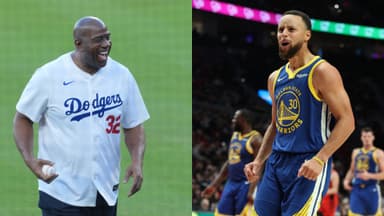Nearly two decades ago, Larry Bird once candidly talked about the evolution of the NBA over the years. On 25th January 2004, the former president of the Indiana Pacers detailed GQ how the league changed due to its players’ influence. During the conversation, the 3x MVP even mentioned the names of Magic Johnson and Michael Jordan to elaborate on his stance.
Advertisement
At first, he reflected on his initial years in the NBA back in the late 1970s and early 1980s. Shedding light on that league culture, Bird mentioned, “When I first played in the NBA, I said, ‘There’s something I don’t like about this league’. It was the drugs. It was the guys who didn’t want to play all the time”.
Then the 6ft 9″ legend opened up about the lack of competitiveness during that period, stating, “I didn’t get any enjoyment out of a game unless the guy I was playing against challenged me on every possession”. It soon changed rapidly as his Boston Celtics started to rival Johnson’s Los Angeles Lakers in the 1980s. “As the years went on, with Magic in it, the league got better,” the 3x champion highlighted.
Following this, Bird mentioned how the NBA entered a new era in the late 1980s and 1990s. The rise of Jordan, Patrick Ewing, Karl Malone, and John Stockton ushered the league into a different yet better direction. “We got better players—Michael, Patrick, Karl Malone, Stockton. We had quality guys in the league,” the Indiana-born thus mentioned.
Amidst the changes, Larry Bird put his reputation at risk
The NBA’s reputation was tarnished in November 2004 as the Indiana Pacers player got involved in a brawl with the Detroit Pistons fans. The incident later became popular as ‘Malice at the Palace’ as Pacers’ Ron Artest, also known as Metta World Peace, received a suspension. He was sidelined for the remained of the season, missing a total of 86 games in that campaign.
Ahead of his return to the league in the 2005/06 season, Sports Illustrated took it a step further as they aimed to restore his reputation. To do so, the organization approached Bird, then head of basketball operations at the Pacers, to pose in the picture with the small forward. The goal was to portray Artest as a level-headed competitor with the support of the savior of the NBA putting the latter’s reputation on the line.








